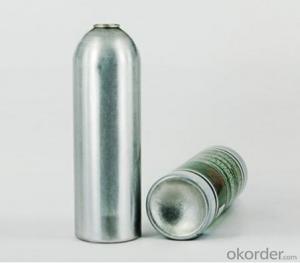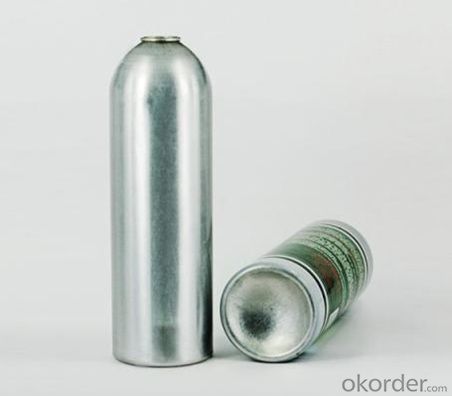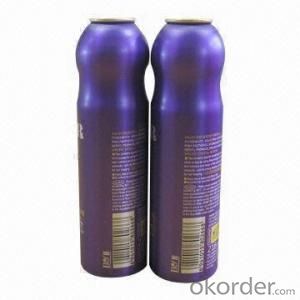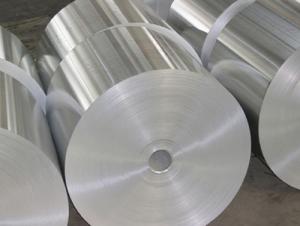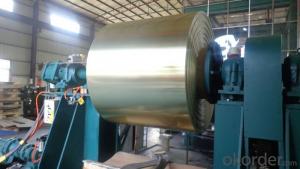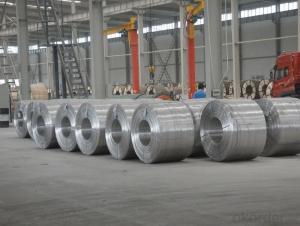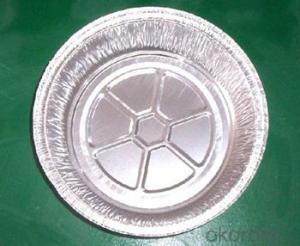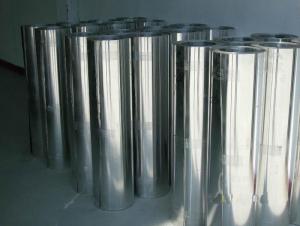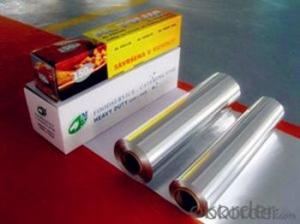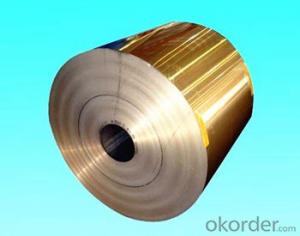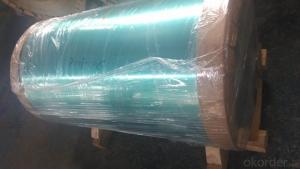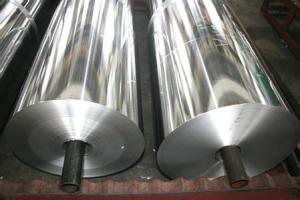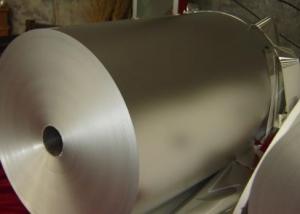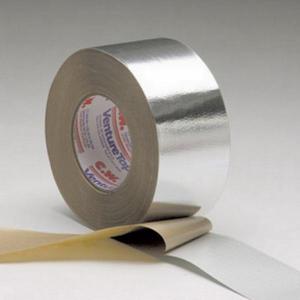High Quality House hold Aluminum Aerosol Can
- Loading Port:
- Shanghai
- Payment Terms:
- TT or LC
- Min Order Qty:
- 1000 pc
- Supply Capability:
- 50000 pc/month
OKorder Service Pledge
OKorder Financial Service
You Might Also Like
1.Description of High Quality House hold Aluminum Aerosol Can
Usage: household care, car care, industry use
Inner Coating: Oxygen phenolic resin
Printing: Up to 9 colors, as per desgign draft supplied by customer
Used for cosmetics, deodorant, hair mousse, body spray and air freshener etc.
Feature:we can make high quality chinese factory aluminum empty aerosol can according to buyer's samples
Diameter:22,25,35,38,40,45,50,53,55,66mm
Height:58-230mm(according to buyer's request)
Thickness:according to buyer's request
If you have any interest or needs in aluminum empty can aluminum blank aerosol jar , pls don't hesitate to contact me,I will do my best to meet your requirements
2. Standard and MOQ
In conformity with FEA StandardS(European AEROSOL FEDERATION).
Min. Pressure resistance: 12bar
Ibase coated and printed in up to 9colours.
3.Main Features and specification of High Quality House hold Aluminum Aerosol Can
| Diameter | Min Height | Max Height |
| 22 mm | 50 mm | 110 mm |
| 25 mm | 65 mm | 120 mm |
| 28 mm | 70 mm | 120 mm |
| 35 mm | 76 mm | 150 mm |
| 38 mm | 76 mm | 165 mm |
| 40 mm | 90 mm | 170 mm |
| 45 mm | 95 mm | 200 mm |
| 50 mm | 105 mm | 215 mm |
| 53 mm | 105 mm | 215 mm |
| 59 mm | 150 mm | 215 mm |
| 66 mm | 150 mm | 235 mm |
4. High Quality House hold Aluminum Aerosol Can Image
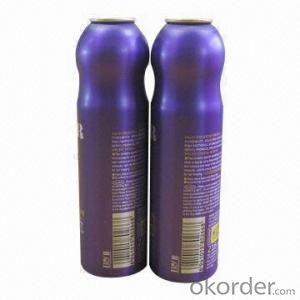
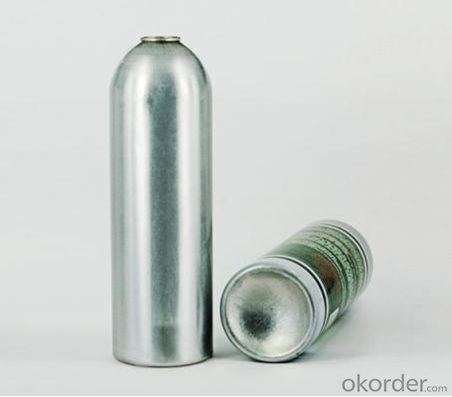
5. FAQ
A.How to guarantee the quality?
Customers are welcome to our mill to visit and check the products. Besides, we can arrange a third party to test the products.
B.When will you deliver the products?
The goods will be delivered within 35 days after receiving advanced payment or original L/C.
- Q: This question asks about the impact of aluminum on human health.
- <p>Aluminum is a naturally occurring element that can be found in small amounts in various foods, water, and air. While it's not considered an essential nutrient, it's also not inherently harmful in small quantities. However, excessive exposure to aluminum has been linked to potential health concerns. Some studies suggest that high levels of aluminum might contribute to neurological disorders, particularly Alzheimer's disease, although the evidence is not conclusive. Aluminum can also cause digestive issues and bone disorders if ingested in large amounts. It's important to note that the human body does not absorb aluminum efficiently, and most ingested aluminum is excreted without issue. However, it's always advisable to minimize exposure to high levels of aluminum, especially for vulnerable populations such as infants and those with kidney issues.</p>
- Q: What measures should be taken to ensure safety when handling or using aluminum products?
- <p>When using aluminum products, safety precautions include handling with care to avoid sharp edges that may cause cuts. Ensure proper ventilation when working with aluminum powder or dust to prevent respiratory issues or fire hazards. Avoid using aluminum cookware for acidic or alkaline foods as it can react and leach aluminum into the food. Always follow the manufacturer's instructions for use and cleaning, and wear appropriate protective gear such as gloves and masks when necessary.</p>
- Q: Is it possible to recycle aluminum cans and turn them into new cans?
- <p>Yes, aluminum cans can be recycled into new ones. The recycling process involves melting the used cans, which is much less energy-intensive than extracting and refining new aluminum from bauxite ore. Once melted, the aluminum can be reshaped into new cans or other products. This process is not only environmentally friendly but also economically efficient, as it saves energy and reduces waste.</p>
- Q: Explain how the production process of recycled aluminum differs from that of new aluminum, focusing on energy consumption and environmental impact.
- <p>The production process for recycled aluminum is significantly less energy-intensive compared to the production of new aluminum. Producing new aluminum from bauxite ore requires high temperatures and substantial energy, often from fossil fuels, to smelt the ore and extract the metal. This process emits greenhouse gases and consumes large amounts of electricity. In contrast, recycling aluminum involves melting down existing aluminum products, which requires only about 5% of the energy needed to produce new aluminum. This process is more environmentally friendly, as it reduces energy consumption, lowers greenhouse gas emissions, and conserves natural resources by decreasing the need for raw materials.</p>
- Q: Is it possible to utilize aluminum in the construction of automobiles?
- <p>Yes, aluminum is widely used in automobiles due to its lightweight and high strength properties. It is commonly found in engine components, body panels, and wheels. Aluminum helps reduce the overall weight of the vehicle, which can improve fuel efficiency and reduce emissions. Additionally, it is resistant to corrosion and can be easily recycled, making it an environmentally friendly choice.</p>
- Q: This question seeks to understand the impact of aluminum exposure on human health, including potential risks and consequences.
- <p>Aluminum is a common element found in the environment, and while it is generally considered safe, there are concerns about its health effects on humans. High levels of aluminum exposure have been linked to neurological disorders, particularly Alzheimer's disease, although the relationship is not definitively proven. Aluminum can also cause bone diseases and anemia, as it can interfere with the absorption of calcium and iron. Long-term exposure to high levels of aluminum may lead to cognitive dysfunction and memory loss. However, the everyday exposure to aluminum from food, water, and medications is considered safe by health authorities, and there is no need for alarm in normal circumstances.</p>
- Q: Is there a connection between aluminum exposure and the development of Alzheimer's disease?
- <p>Aluminum has been a subject of debate regarding its potential link to Alzheimer's disease. However, current scientific consensus does not support the idea that aluminum exposure causes Alzheimer's. Extensive research has failed to establish a definitive causal relationship between aluminum and Alzheimer's. While aluminum is naturally present in the environment and can be found in some foods, water, and medications, studies have not shown it to be a significant risk factor for the development of Alzheimer's. The disease is believed to be caused by a combination of genetic, lifestyle, and environmental factors, but aluminum is not considered one of them.</p>
- Q: This question asks for an overview of the environmental concerns associated with the manufacturing process of aluminum.
- <p>The production of aluminum is associated with several environmental issues. One major concern is the high energy consumption required for the smelting process, which contributes to greenhouse gas emissions. The process also generates significant amounts of waste, including red mud, a hazardous byproduct that can contaminate soil and water if not properly managed. Additionally, deforestation and habitat destruction occur due to the mining of bauxite, the primary ore of aluminum. Air pollution is another issue, as the production process releases particulates and other pollutants into the atmosphere. Lastly, the depletion of non-renewable resources, such as fossil fuels used in the smelting process, is a long-term environmental concern related to aluminum production.</p>
- Q: Is aluminum capable of functioning as a catalyst in chemical reactions?
- <p>Aluminum is not typically used as a catalyst in chemical reactions. Catalysts are substances that increase the rate of a chemical reaction without being consumed in the process. Aluminum, being a metal, does not have the properties necessary to act as a catalyst in most reactions. However, it can be used in certain reactions as a reducing agent or in the form of organoaluminum compounds, which may participate in catalytic processes, but these are not common applications.</p>
- Q: This question asks for a comparison of the benefits and drawbacks of using aluminum as a material in construction projects.
- <p>Aluminum in construction offers several advantages, including its lightweight nature, which reduces structural load and facilitates easier transportation and installation. It is also highly resistant to corrosion, making it ideal for outdoor applications and in areas with harsh weather conditions. Aluminum's recyclability contributes to sustainability, and it has a high strength-to-weight ratio, enhancing structural integrity. However, it has some disadvantages, such as being a poor conductor of heat, which may require additional insulation. It can also be more expensive than traditional materials like steel or concrete, and it dents easily, necessitating careful handling and maintenance.</p>
Send your message to us
High Quality House hold Aluminum Aerosol Can
- Loading Port:
- Shanghai
- Payment Terms:
- TT or LC
- Min Order Qty:
- 1000 pc
- Supply Capability:
- 50000 pc/month
OKorder Service Pledge
OKorder Financial Service
Similar products
Hot products
Hot Searches
Related keywords
